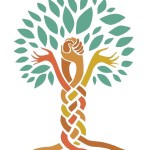Community Inclusion
Community inclusion is one of the greatest challenges facing people with disabilities. People with intellectual and developmental disabilities often do not participate in community activities in a meaningful way, in roles that allow them to demonstrate their abilities, establish true relationships with others, earn recognition and respect from others, learn new skills, or simply to have fun.
True community inclusion must be based upon personal connections, common interests, shared values, and upon ongoing interactions that occur as people with disabilities and community residents encounter each other on a regular basis in natural settings, such as at church, the grocery store, at restaurants, and other community settings.
Community inclusion is essential because:
- It enriches the lives of our family members; it is stimulating and addresses their need for human interaction.
- It is a means to skill development for potential employment and daily living.
- It is a means to develop essential community support which can minimize the impact of funding cuts in the Medicaid program.
One of the prerequisites for inclusion is value. There must be an underlying reason for inclusion to occur and to be sustainable. Inclusion must provide value or satisfy an underlying need; it must be valuable to the community and it must be valuable to the person with disabilities. Value is key to sustaining inclusion.
Parent-led programs have been more successful in promoting community inclusion than agency run programs because parents are often more committed to successful outcomes for their family members.
The following key words and phrases describe what are important outcomes of community inclusion:
Feeling good about one’s self
Sharing
Being valued as part of the community
Socializing
Being happy, safe and healthy
Seeing beyond the outward appearance
Contributing
Starting a business
Volunteering to help others
Playing
Working and getting paid is important
Singing
Helping others
Empowerment
Filling a need
Displaying abilities
Providing a skill that can be used even if it requires a customized job
Allow others to help you and be a part of your life
Actively engaging others
Finding one’s niche
Being a good steward of the earth
Respect
Being local
Self-worth
Self-reliance
Self-advocate
Learning
Skill-building
